
Skill Development Therapies for ASD


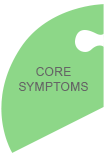
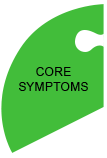
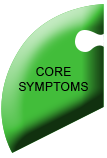
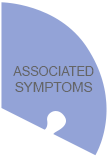
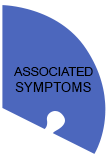
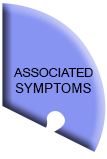



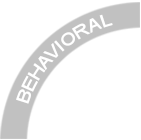
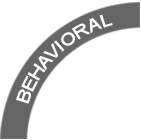
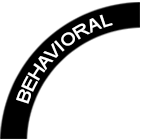



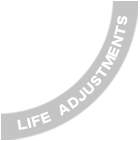
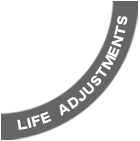
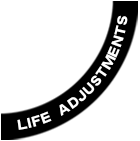



In this section, we cover several therapies that target education, cognitive development, and life skills for children and adults with Autism Spectrum Disorder (ASD). Specifically, you will find options that target the following:
- Cognitive test scores
- Sensory-based skills
- Self control
- Life skills
 Children who attend inclusive preschools—where they learn alongside children with typical development—show greater improvement on cognitive test scores than those attending non-inclusive preschools, according to a report in the journal Autism. Among those children attending inclusive preschools, those with the most severe social and behavioral deficits but at least baseline communicative skills experienced the greatest improvement.1 Further research could help define which preschool placements are most appropriate for children across the autism spectrum.
Children who attend inclusive preschools—where they learn alongside children with typical development—show greater improvement on cognitive test scores than those attending non-inclusive preschools, according to a report in the journal Autism. Among those children attending inclusive preschools, those with the most severe social and behavioral deficits but at least baseline communicative skills experienced the greatest improvement.1 Further research could help define which preschool placements are most appropriate for children across the autism spectrum. The Playwisely Program is a low-cost system designed to promote connections between sensory areas of the brain. The program uses interactive flashcards that mix sight, sound, and touch. Researchers from the Autism Treatment Center in Dallas, Texas, reported that Playwisely improves multiple skills in children with ASD after three months. According to the report, children showed significant improvements in recognition, sensory mixing, speech sound awareness, letter recognition, and early memory skills.2
The Playwisely Program is a low-cost system designed to promote connections between sensory areas of the brain. The program uses interactive flashcards that mix sight, sound, and touch. Researchers from the Autism Treatment Center in Dallas, Texas, reported that Playwisely improves multiple skills in children with ASD after three months. According to the report, children showed significant improvements in recognition, sensory mixing, speech sound awareness, letter recognition, and early memory skills.2
The authors of the study estimate that Playwisely is one-tenth the cost of available alternatives. This makes Playwisely an attractive option for all families, regardless of income. A major strength to this study is that clinicians made post-treatment assessments in a blind manner. This means the clinician did not know if the child was part of the Playwisely or usual care group.
Children with ASD are known to experience difficulty with self-control—which manifests as temper tantrums and repetitive, rigid, or impulsive behaviors. If self-control difficulties are not addressed, additional learning problems can follow. Most existing interventions to improve self-control use a form of behavior-based therapy. However, other options to improve self-control are available.
 For example, a study published in 2013 demonstrated that Nei Yang Gong, a Chinese mind-body exercise, could improve self-control in children with ASD. According to the researchers, children participating in Nei Yang Gong scored better on neurophysical tests, parental questionnaires, and electroencephalography (EEG) brain activity recordings measuring self-control than children using conventional behavioral techniques.3
For example, a study published in 2013 demonstrated that Nei Yang Gong, a Chinese mind-body exercise, could improve self-control in children with ASD. According to the researchers, children participating in Nei Yang Gong scored better on neurophysical tests, parental questionnaires, and electroencephalography (EEG) brain activity recordings measuring self-control than children using conventional behavioral techniques.3
Prior research has shown that individuals ASD have more difficulty gaining employment than adults with other disabilities. Deficits in social communication skills, which are important in the initial job interview process, are thought to contribute to job-related problems among individuals with high functioning ASD.
 JobTIPS, an internet-accessed platform containing videos, virtual reality practice sessions, and other tools tailored specifically to people with high functioning ASD, improves verbal content skills during the job interview process, according to a study in 2013.4 These results suggest that online structured coaching can improve skills needed to obtain employment among youth with ASD.
JobTIPS, an internet-accessed platform containing videos, virtual reality practice sessions, and other tools tailored specifically to people with high functioning ASD, improves verbal content skills during the job interview process, according to a study in 2013.4 These results suggest that online structured coaching can improve skills needed to obtain employment among youth with ASD.
| Evidence Legend | |
|---|---|
 |
Research-supported – a therapy with the highest level of evidence for safety and effectiveness based on rigorous scientific research and well-controlled clinical trials. |
 |
Promising – a therapy that is being actively researched in scientific studies and clinical trials with promising results |
 |
Suggestive – a therapy that has been known for some time but is not actively researched at present OR a novel therapy having current research of one or two preliminary studies showing suggestive results |
 |
No evidence available – a therapy that lacks any evidence-based support for effectiveness or safety |
| References: |
|

